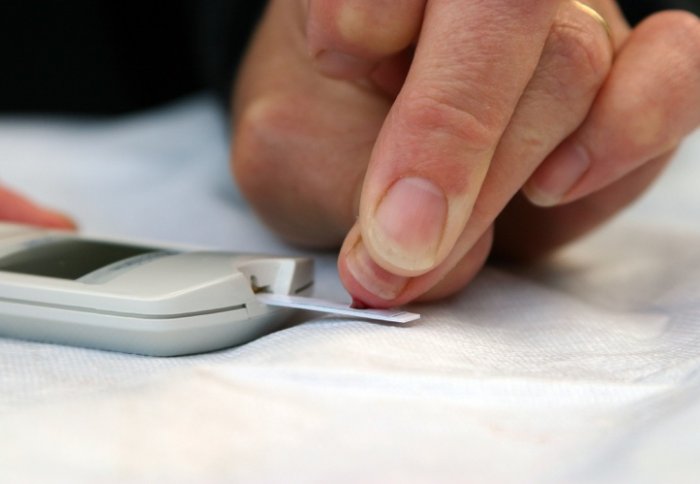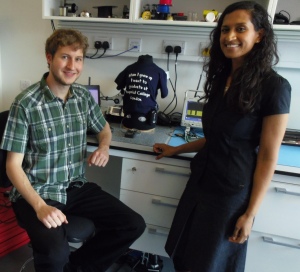Sweet treats and expanding waistlines: diabetes research at Imperial

Across the UK, diabetes diagnoses are rising each year. Figures from Diabetes UK suggests in 2012 around three million people had the disease.
This equates to around 4.6 per cent of the UK’s population, and of these 10 per cent have the type 1 form of the disease, and type 2 accounts for 90 per cent. Diabetes is reaching epidemic proportions.
The extent of the problem is something that is being addressed by researchers at Imperial, with many on-going projects and recently-published papers hitting the headlines in just the last few months.
For instance, the impact of sugary drinks in people’s diets, appetite suppression and the spread of type 2 diabetes to poorer countries have been some of the most widely-read and reproduced stories emerging from the College this year.
Dr Monika Reddy, a Clinical Research Fellow in the Department of Medicine, is working on the Wellcome Trust-funded Artificial Pancreas. The Bio-inspired Artificial Pancreas system consists of a glucose sensor, a control algorithm implemented in a microchip and an insulin pump. It works by automatically adjusting insulin infusion rates aiming for blood glucose levels in the normal range and reducing the risk of hypoglycaemia and long-term complications. Clinical trials started in February 2012 and show encouraging results for people with Type 1 diabetes.

Peter Pesl and Dr Monika Reddy with their diabetes devices
Also working with Type 1 diabetes is PhD researcher Peter Pesl, who has developed a mobile decision support tool that is linked to a continuous glucose sensor and gives personalised insulin recommendations. Patients can access advice on how much insulin they need for a meal with a few clicks using a smartphone application. By entering additional information, for instance whether they plan to do exercise after a meal, the system is able to learn over time based on the behaviour of the patients. The aim is to help people with type 1 diabetes achieve better glucose control by providing individualised insulin advice and therefore prevent secondary long term complications of diabetes.
At the end of 2012, a prestigious European Research Council Synergy grant was awarded to Professor ChrisToumazou and Professor Sir Steve Bloom for the 'i2MOVE' project, which aims to stimulate nerves to simulate the sensation of feeling full. By reducing obesity levels the hope is that obesity-related diseases such as Type 2 diabetes will also see a fall in prevalence.
The College collaborates with Imperial College Healthcare NHS Trust work to develop clinical trials. The North West London Diabetes Local Research Network (NWL DLRN), which is located next to Imperial's St Mary's campus, actively recruits potential patients for diabetes-related clinical trials and offers support and advice for all those involved.
For more information about clinical trials, visit the NWL DLRN website.
Article supporters
Article text (excluding photos or graphics) © Imperial College London.
Photos and graphics subject to third party copyright used with permission or © Imperial College London.
Reporter
Mike Jones
Enterprise
Martin Sayers
Communications Division
